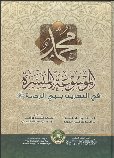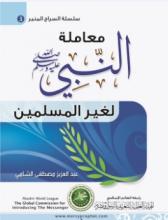يونيو 2010
In Rajab, the tenth year of the Prophethood, Abu Talib fell ill and passed away, six months after leaving the confinement at Ash-Sh‘ib. In another version, Abu Talib breathed his last in Ramadan, three days prior to the death of Khadijah (May Allah be pleased with her). On the authority of Al-Musaiyab, when Abu Talib was on the death bed, the Prophet (Peace be upon him) entered the room where he saw Abu Jahl and ‘Abdullah bin Abi Omaiyah. He requested his uncle:
Only two months after the death of his uncle, did the Messenger of Allâh (Peace be upon him) experience another great personal loss viz., the Mother of believers, his wife Khadijah passed away in Ramadan of the tenth year of his Prophethood, when she was sixty-five years old, and he was fifty. Khadijah was in fact a blessing of Allâh for the Prophet (Peace be upon him). She, for twenty-five years, shared with him the toils and trials of life, especially in the first ten years of his ministry of Prophethood.
The death of Khadijah left the Prophet (Peace be upon him) lonely. The name of Sawdah was suggested to him for marriage which he accepted. This lady had suffered many hardships for the sake of Islam. She was an early convert to the Islamic Faith and it was by her persuasion that her husband had embraced Islam. On the second emigration to Abyssinia (Ethiopia), Sawdah had accompanied her husband As-Sakran bin ‘Amr. He died on their way back to Makkah leaving her in a terrible state of destitution.
Here we could adduce some of the verses of this category pregnant with glad tidings referring to the final victory that would crown the perseverance and patience of the Muslims:
The sense of responsibility. The early Companions were fully aware of the daunting responsibility they were expected to shoulder. They were also convinced that those charges were inescapable even though they were being persecuted for fear of the far-reaching ramifications, and the horrible impact that humanity would suffer in case they shirked their obligations.
It is natural for sensible and mild-tempered people to meditate deeply on the factors that inspired those early Muslims that miraculous constancy and perseverance. It is normal to wonder how those people managed to tolerate unspeakable persecutions, and stand fast in the face of tyrannical tortures. With respect to these questions, we deem it wise just to touch on those underlying reasons:
In Shawwal (in the last of May or in the beginning of June 619 A.D.), ten years after receiving his mission from his Lord, the Prophet (Peace be upon him) set out towards At-Ta’if, about 60 kilometres from Makkah, in the company of his freed slave Zaid bin Haritha inviting people to Islam. But contrary to his expectations, the general atmosphere was terribly hostile. He approached the family of ‘Umair, who were reckoned amongst the nobility of the town.
“O Allâh! To You alone I make complaint of my helplessness, the paucity of my resources and my insignificance before mankind. You are the most Merciful of the mercifuls. You are the Lord of the helpless and the weak, O Lord of mine! Into whose hands would You abandon me: into the hands of an unsympathetic distant relative who would sullenly frown at me, or to the enemy who has been given control over my affairs? But if Your wrath does not fall on me, there is nothing for me to worry about.”
“Say [O Muhammad (Peace be upon him) ]: “It has been revealed to me that a group (from three to ten in number) of jinns listened (to this Qur’ân). They said: ‘Verily! We have heard a wonderful Recital (this Qur’ân)! It guides to the Right Path, and we have believed therein, and we shall never join (in worship) anything with our Lord (Allâh).’” [72:1,2] … Till the end of the 15th verse.
Swaid bin Samit . He was an intelligent discreet poet from Yathrib (Madinah). During his stay in Makkah for pilgrimage (or lesser pilgrimage), he encountered the Prophet (Peace be upon him) who invited him to embrace Islam. At this invitation, Swaid imparted to the Prophet some sound words from Luqman’s wisdom. The Prophet approved of that wisdom but told the man that he had something far better. He recited some verses from the Qur’ân, the man listened meditatively and the words appealed to his originally pure nature and accepted Islam as his faith at once.






.jpg)

